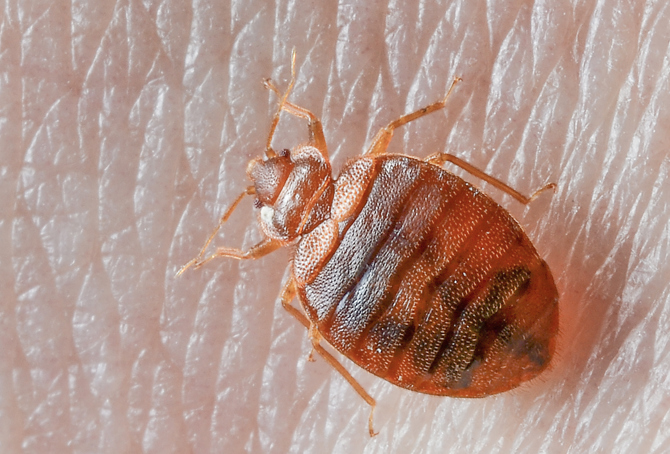An observational exercise conducted by Virginia Tech University field researchers estimates that the Polar Vortex may have killed 95 percent of the stink bugs that hadn’t found shelter to stay warm this winter. However, not all common pests are freezing as homeowners might wish.
Brown marmorated stink bugs cause major economic damage to fruit, vegetable, and field crops.
Invasive species in the Northeast such as the emerald ash borer and southern pine beetle aren’t likely to survive the winter cold, but New York City cockroaches and bed bug populations will unfortunately not be affected. Also, even if adult pests freeze, they may have already laid eggs which will hatch when the weather warms.
As for pests like ants, mosquitoes and termites, many people assume they just die off, but the truth is that these and other insects often devise strategies to make it through the winter. Learn more about how specific pests survive the harsh elements below.
Ants


It’s not all that often you see an army of ants marching across the kitchen counter in the dead of winter. However, that doesn’t mean they aren’t nearby. Ants are very successful at overwintering in the great outdoors, including our own yards. During the fall months, they indulge in vast amounts of food with the goal of putting on fat to survive for weeks on end without eating. As the winter chill arrives, their body temperature – and productivity – significantly decreases, so they seal up their colony and hunker down in deep soil or under rocks until spring has sprung. Once the temperature rises, ants will emerge from their overwintering sites, full of energy and ready to crash the next backyard barbecue.
Bed Bugs


Bed bugs can withstand temperatures from nearly freezing to 122 degrees Fahrenheit, which makes controlling them extremely difficult. However, they often succumb after a few days of exposure to temperatures below 32 degrees Fahrenheit. The bad news is our homes provide the perfect habitat for bed bugs to survive during the winter months.
Cockroaches


Cockroaches have been around for millions of years, evolving into some of the most adaptable creatures in the world. But, are they able to survive the cold weather? Generally speaking, most types of cockroaches can survive year-round, as long as they have easy access to a warm, moist environment. The German cockroach, for example, prefers an indoor humid habitat close to food and moisture sources. As such, this species often makes itself quite comfortable in residential kitchens and bathrooms, especially during the winter months. The American cockroach, on the other hand, will live outdoors in warmer climates. Once the temperature dips, this type of cockroach will mass migrate into homes or larger commercial buildings such as restaurants, grocery stores, food processing plants and hospitals.
Mosquitoes


Encountering mosquitoes – and those itchy, red mosquito bites – is inevitable when spending time outdoors during the summer months. But, you might be surprised to find out that mosquitoes don’t fall away when Old Man Winter moves in. Contrary to popular belief, these biting insects overwinter, or hibernate, in protected places like hollow logs. As the weather conditions improve, female mosquitoes awaken and seek out a blood source to feed and begin developing eggs. Watch this video to find out what happens to mosquito larvae, too.
Termites


What happens to termites during the winter is heavily influenced by the specific species and the climate in which they live. In colder climates, subterranean termites will dig deeper into the soil – below the frost line – to stay warm. Other species like drywood termites will seek out dry wood for shelter. After the last freeze, typically in the springtime when the temperature reaches about 70 degrees Fahrenheit, young male and female termite swarmers emerge from their nests to find a mate and new nest location, which oftentimes can be inside our homes. In warmer climates or heated homes, where the temperature is controlled, termites can be active year-round.
If you suspect or discover an infestation, make sure to contact a licensed pest control professional to properly assess and handle the problem.















